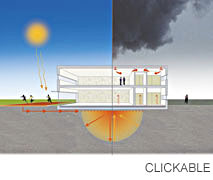Heat Pump Association
The Heat Pump Association (HPA) represents manufacturers and distributors of heat pumps in the UK and heat pump component manufacturers.
The HPA aims to influence legislation that affects the interests of its members. The HPA also co-ordinates technical and market research with the aim of improving market opportunities, at home and abroad.
The HPA recognises that heat pumps only fulfill their promise if suppliers, installers and users fully appreciate their function and capabilities and install them correctly. A major objective of the HPA is to raise awareness of the potential of heat pumps by informing prospective specifiers of their long-term benefits, reassuring end users and providing up-to-date advice on the various systems available. The HPA conveys this message by generating publicity using exhibitions, literature, promotions and public relations.
Heat Pump Association Awards
The HPA has instituted a series of annual awards, intended to encourage good design, professional installation and the innovative application of heat pumps. There are two categories: a student award, open to all UK university students, and an award for the best heat pump application – this is the HPA's top award and is determined on the basis of case studies submitted to the panel by building owners, on recommendations from HPA members.
The Heat Pump Association places emphasis on advice and education, to ensure that systems are appropriate to their applications and installed with the highest degree of professionalism.
Heat Pumps – Coefficient of Performance
Heat pumps can supply more energy than they consume – by transfering heat from their natural surroundings. An "unassisted" ground source heat pump system can supply as much as 3kW of heat output for just 1kW of electrical input. A heat pump linked to a ThermalBank can supply as much as 6kW of heat for 1kW of electricity. Heat can be transferred from outside air or from warm exhaust air. Heat can also be drawn from the ground or from a water source such as river or waste water. Heat from any of these sources can be used to heat air or water for space heating, domestic hot water or other industrial needs.
Unlike other heating systems, heat pumps can also be used for cooling.
Heat pumps can be used for:
- space heating
- process heating
- domestic space heating
- domestic water heating
- air conditioning and space cooling
- saving carbon emissions
- helping to achieve planning permission
For more detailed information on the advantages of heat pumps see: Heat Pumps
Ground Source Heat Pump Association
The Heat Pump Association is a member of the Ground Source Heat Pump Association which, in turn, promotes the efficient and sustainable use of ground source heat pumps for heating and cooling buildings.
See also: Ten old myths surrounding ground source heat pumps that are simply untrue.
See also: Decarbonisation of the National Grid accelerates the case for electrification of heat and use of heat pumps.



